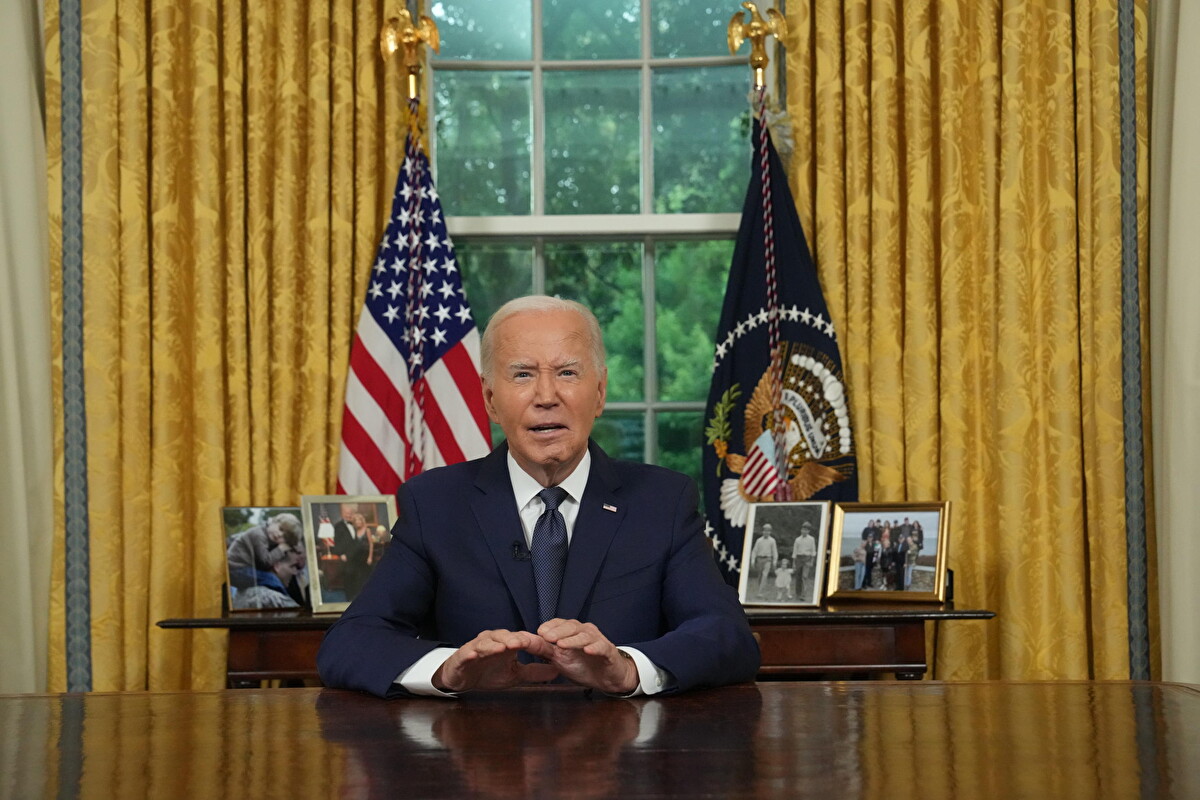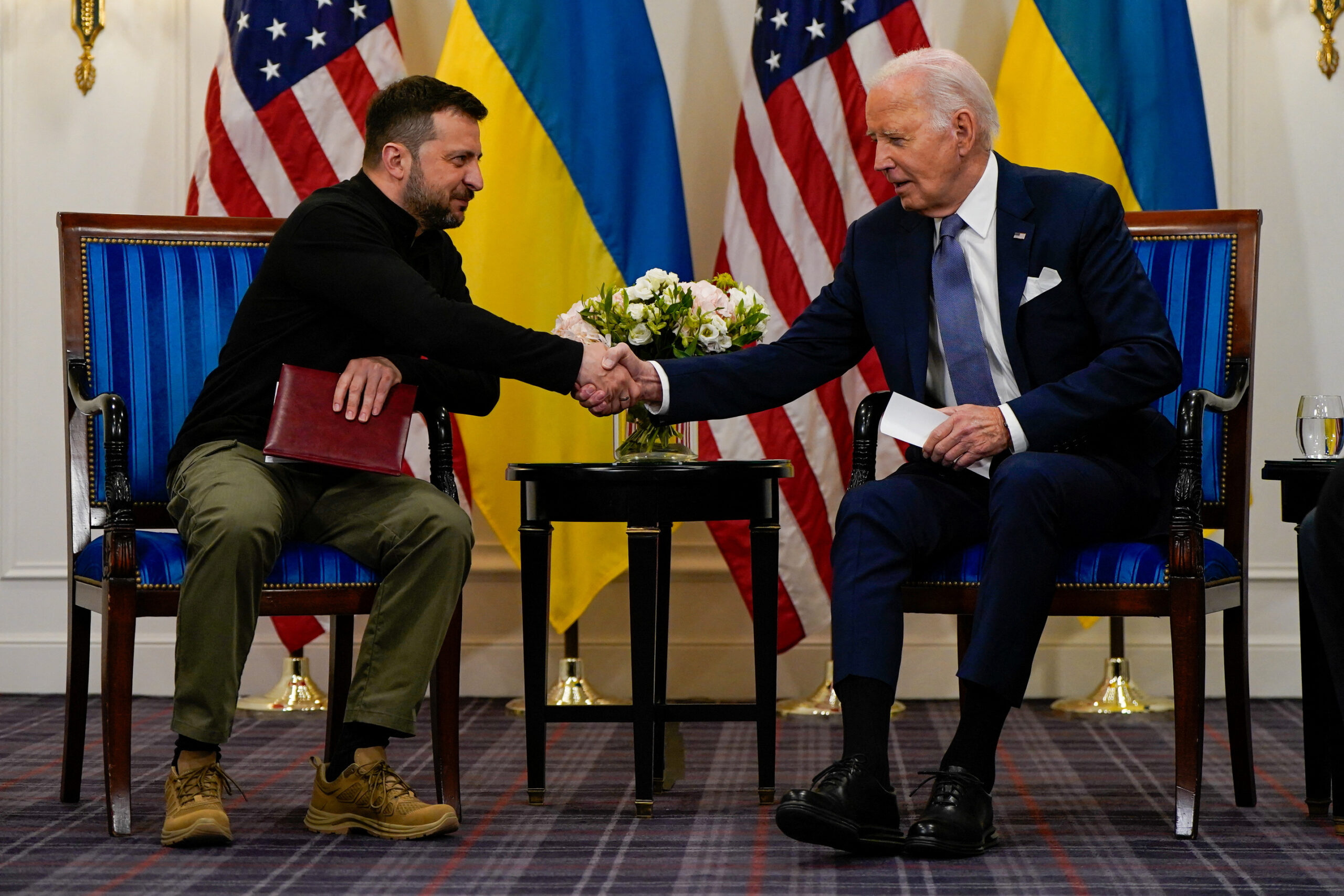It is not an exaggeration to say that Joe Biden has been hounded out of office by the pressures brought by the press, which ginned up doubts about his mental acuity and his ability to govern effectively during a second term. With the ubiquity of the image and its 24/7 relentless coverage, no man has ever been scrutinized more persistently. Every word has been parsed and judged for its clarity, every step has been observed for its vigor. Every weakness has become cause for a disquisition—even as his rival, Donald Trump, is just a few years behind him and is both inarticulate and fuzzy-brained; he has never been able to express a thought with any linearity or clarity.

Drawing analogies between historical figures and contemporary leaders can be a tricky task, as it involves comparing different eras, challenges, and leadership styles, but there are times when it is too tempting to avoid doing so. Winston Churchill, probably the most revered British political leader of the twentieth century, is often remembered for his steadfast leadership during a time of extreme crisis. His speeches and radio broadcasts were instrumental in bolstering British morale during the darkest days of WWII. Yet in 1945, amid public criticism of demagoguery and indifference to domestic issues, he lost the election to the Labour Party candidate (Attlee, whose name, by contrast, has fallen into oblivion) by a landslide and was cast into the obscurity of private life—but not for ever.
Churchill’s campaign in 1945 was already going badly–people feared that he had no interest in addressing urgent domestic issues, but it suffered a mortal blow due to a poorly received speech in which he suggested that a Labour government would require some form of authoritarian force, akin to the Gestapo, to implement its policies. This comparison was seen as a scare tactic and further alienated voters.

Yet the loss did not diminish Churchill’s stature among many British citizens who still held him in high regard. His leadership during World War II had earned him a place in the hearts of the people, and there was a strong desire to see him return to government. And indeed, Churchill did make a comeback as Prime Minister after the general election of 1951. His return to power is often seen as a testament to his resilience and the deep respect he commanded across the nation. The place he holds in history confirms their sentiment.
There were general concerns about his age, 77 in 1951 seemed ancient. But what the British public did not know at the time was that Churchill was both an alcoholic and already suffering from the early stages of dementia—probably triggered by a series of mini strokes and atherosclerosis. During his term his personal physician, Lord Moran, noted several health issues that Churchill faced, including a major stroke in 1953, which was kept secret from the public and even Parliament. This stroke led to a period of recuperation away from the public eye, raising some questions about his capacity to govern—and more importantly, who indeed was governing?
Churchill’s health had always been a subject of interest, but in the post-war period, as he got older, this was amplified. His mental acuity, a defining trait of his leadership, sharply deteriorated—but the fact was always kept within his inner circle. There were no public admissions of significant cognitive decline and the public and press were by and large too respectful to pry and probe.
Yet the second Churchill ministry is often remembered for restoring balance to British politics and for Churchill’s robust approach to the Soviet threat, which he had famously highlighted in his ‘Iron Curtain’ speech prior to his comeback. His tenure lasted until his resignation on April 5, 1955, when his health declined further and his departure from the forefront of British politics became unavoidable.

President Joe Biden’s leadership has been marked by his efforts to navigate the United States through a period of deep political division, the global COVID-19 pandemic, and unprecedented social change. While Churchill was known for his wartime leadership, Biden has focused on domestic issues, such as economic recovery and healthcare reform, as well as international challenges like wars in both Ukraine and Israel, climate change, and alliances wrecked by his predecessor’s isolationist MAGA policies.
Unlike Churchill, Biden cannot enjoy the luxury of a boundary between his private and public life; news coverage is 24/7 and brutal, social media warriors intrude with their opinions—whether based in fact or not—and internet gossip creates its own emotional weather.
Yet, it is to be hoped that having been chased out of office by critics, history will be as kind to President Joe Biden as it has been to Winston Churchill; both flawed human beings who gave their all.












